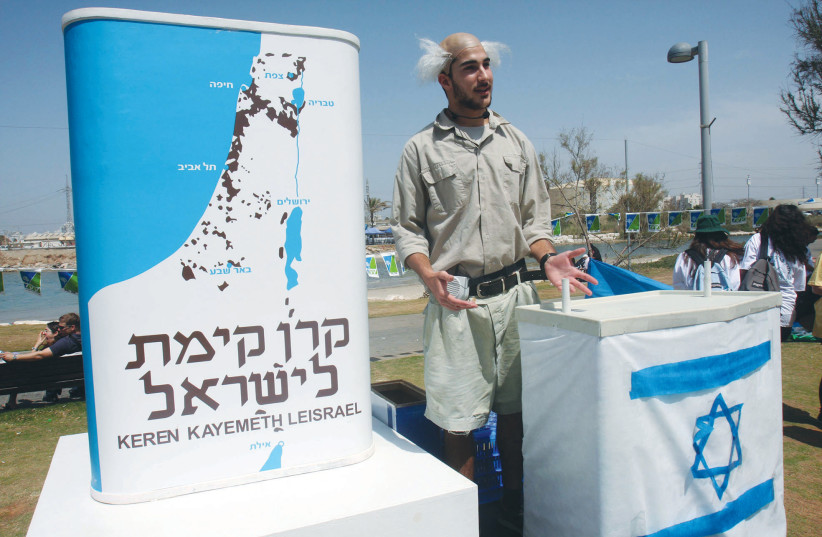KKL-JNF and JNF-USA renew cooperation after 20-year hiatus
In a surprising turn of events, Keren Kayemeth LeIsrael (KKL-JNF) and Jewish National Fund-USA (JNF-USA) have decided to reinstate their cooperative relationship after 20 years of separation. This unexpected unification has emerged from a series of discussions held in New York, driven by leaders from both organizations, KKL-JNF Chairwoman, Ifat Ovadia-Luski, and JNF-USA’s Joe Wolfson.
However, the announcement may also hint at pragmatic considerations behind the partnership. For years, both organizations have been grappling with their share of controversies and challenges. JNF-USA has faced allegations of fund mismanagement and legal troubles, including a past revelation that only 21% of donations reached Israel, with the rest diverted elsewhere. Meanwhile, the KKL-JNF has had to address the complex issue of land ownership and its political implications within Israel and the Palestinian territories.
In a statement addressing the renewed cooperation, Ovadia-Luski conveyed her optimism but also acknowledged the hurdles, saying, “Since I took office, I have been striving to reach agreements in many areas. I am confident that this understanding will help the Jewish people and the State of Israel in various ways. Yet, we must remember our history and the lessons learned. Our focus must be on accountability and transparency as we move forward with our renewed partnership.”
This rekindling of collaboration, then, is not just about common Zionist goals, but also a shared interest in overcoming reputational and operational hurdles. They aim to bolster their collective influence, pool resources, and address the growing challenges of antisemitism and the BDS movement. The agreement also calls for the formation of joint task forces to undertake ambitious projects in Israel’s Negev and Galilee regions, including the proposed Zionist Village in Be’er Sheva.
It’s crucial, however, to contextualize this new initiative. It can be seen as a strategic move aimed at pooling resources and consolidating efforts to counter criticisms and ensure the continuity of their mission. As they navigate through this partnership, both organizations must be conscious of the fact that future success relies not only on their cooperation but also on their accountability, transparency, and ability to learn from past mistakes.
 THE FAMOUS KKL-JNF blue box is promoted by a rather tall and lanky David Ben-Gurion impersonator on Independence Day in Tel Aviv in 2009. (credit: RONI SCHUTZER/FLASH90)
THE FAMOUS KKL-JNF blue box is promoted by a rather tall and lanky David Ben-Gurion impersonator on Independence Day in Tel Aviv in 2009. (credit: RONI SCHUTZER/FLASH90)Zionist future
Joe Wolfson, World Zionist Village Chair, echoed this sentiment with an enthusiastic, yet cautious note, “The time to act for our collective Zionist future is now.” Such enthusiasm may be encouraging to some, yet it should be balanced with a candid acknowledgement of the past and the challenges ahead.
JNF-USA’s revenue in 2020 was a staggering more than $100 million. KKL-JNF’s annual budget consists of NIS billions.
This historic partnership could mark a turning point for KKL-JNF and JNF-USA, as they negotiate their shared goals and individual controversies. It’s a practical yet hopeful step towards an inspiring and unified Zionist future.
However, it remains to be seen how this partnership will navigate through the complex geopolitical landscape, and whether it can deliver on its ambitious objectives while maintaining the trust of their respective constituencies.





Comments are closed.